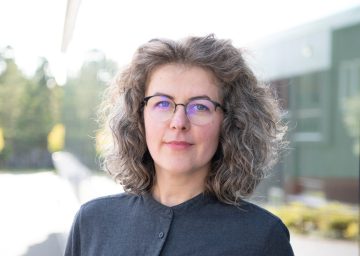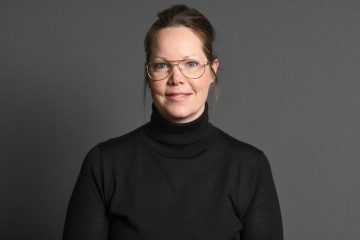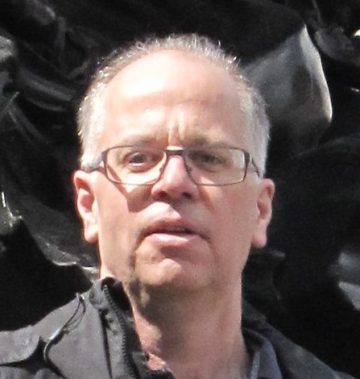Sustainability transformations – research in the Baltic and beyond




Ignė Stalmokaitė,
PhD in Environmental Science, Project Researcher,
School of Natural Sciences, Technology and Environmental Studies, Södertörn University,
Sweden
Fred Saunders,
Associate Professor in Global Development Studies/Environmental Science,
School of Natural Sciences, Technology and Environmental Studies, Södertörn University,
Sweden
Johanna Johansson,
Associate Professor in Political Science and Senior Lecturer in Environmental Social Sciences,
School of Natural Sciences, Technology and Environmental Studies, Södertörn University,
Sweden
Björn Hassler,
Professor in Environmental Science,
School of Natural Sciences, Technology and Environmental Studies, Södertörn University,
Sweden
Understanding and promoting sustainability is one of the key concerns across research, policy-making and everyday lifestyle choices. At the same time, there is growing acknowledgement that responding to sustainability challenges such as biodiversity loss, climate justice and decarbonisation, among others, is rife with differences about what sustainability transformation means and implies across different settings, including the Baltic. The multifaceted character of the sustainability conundrum highlights a range of interrelated questions. For example, what repercussions the promotion of local solutions may have for long-term sustainability paths at national, regional and global levels? How to value ethical, political, social and scientific views on which problems to prioritise and whose knowledge counts? In response, universities are increasingly partnering with stakeholders in solution-oriented sustainability research projects. We understand sustainability transformations as fundamental to how societal, institutional, and technological domains interact towards just, legitimate and enduring arrangements. This perspective provides opportunities to reflect on the complexities of societal change towards sustainability, including who should be involved in partnering for change, what constitutes positive change in particular contexts, how change could come about as well as who benefits and who loses. We relate to these questions with illustrations from research projects undertaken in the Baltic and beyond.
Transformation of ocean conflicts for sustainability
A case study on the offshore wind farm planning process in Hiiumaa, Estonia is part of the OCEANS PACT research project which conceives conflicts over the sea space as avenues for social learning and as potential catalysts for sustainability. The study has identified two competing sustainability paths: i) a blue growth pathway aimed at climate change mitigation via the deployment of renewable offshore wind energy, and ii) a blue justice pathway reflecting local community voices speaking for cultural, social and environmental values of sea space (e.g. migratory seabird habitat areas at sea). Although both pathways represent opportunities for sustainable change, one of the challenges to be addressed concerns how to balance different knowledge claims of what is conceived as a positive transformation. While this project aims to open up a space to imagine different sustainability futures, it recognises that existing problem framings are refracted in such futures.
Transformation of forestry
In forested countries, such as Sweden, forests are considered key elements in reducing greenhouse gas emissions and tackling climate change. This has resulted in two competing sustainability pathways: one claiming the supremacy of storing carbon in the forests by significantly reducing timber harvests, and the other – promoting a continued intensive management to substitute fossil-fuel products with products originating from renewable resources. Policymakers and key actors are thus facing several important choices, particularly the challenge to increase carbon sequestration and secure biodiversity and other values in the forest. The project “On the road to a bio-based economy: Governance pathways and policy design for sustainable forest use (GOVFORBIO)” will evaluate effectiveness of current policy strategies as well as elaborate on and recommend changes. Further, in close collaboration with key actors, acceptable changes will be discussed, given present knowledge gaps and uncertainties of outcomes. Thus, the project recognises the need for a broad discussion on the various values that forests bring to society, and how policy conflicts and power are understood in the process of knowledge co-production underpinning change.
Transformation of small-scale fisheries
JUSTMAR Network (Global Marine Governance Network-co-Constructing a Sustainable Fisheries Future) researchers worked closely with small-scale fishers in global North (Poland) and South (Chile, South Africa and Vietnam) settings with a goal to examine transformation strategies and envision (radical) ideal fishing futures. In the Chilean context, this proved challenging as fishers were more concerned to redress immediate problems rather than discuss abstract future imaginaries. This posed ethical challenges, while also illuminating the differing rationales between researchers and practitioners who are more immersed in real world problems. Upon encountering ‘this problem’ an explorative forward-casting approach was adopted, where strategies were identified that sought to address current problems. This approach lacked an idealised vision of a sustainable future yet supported an incremental edging to a future state that the fishers envisaged would be ‘free’ of current (unsustainable) problems. As part of this work, researchers in partnership with the fishers were able to enact strategies such as writing local histories to increase women fishers’ visibility as fishers and explore relations with local social entrepreneurs on ways to add value to local catch.
Transformation through cluster development initiatives
Researchers in cooperation with the funding agencies established Triple Helix (i.e. academia, business firms and government) cluster activities in Tanzania. The research project “Fostering innovation” was initiated to develop a new cluster monitoring program aiming to enhance decent work and economic growth possibilities while contributing to climate change mitigation and poverty alleviation. For example, researchers in partnership with local community devised strategies to facilitate women empowerment through seaweed farming cluster activities. Scientific knowledge on how to expand seaweed farming from shallow to deep-sea waters as well as experiential knowledge on how to add value in seaweed farming proved important for the expansion of farming into product selling (e.g. seaweed soap). In addition, researchers informed local communities that seaweed can compete with other types of marine vegetation which could in turn affect fish breeding. Therefore, scientists and seaweed farmers developed monitoring tools to count the marine species at sea, as an early warning citizen science initiative.
Insights from these research practices in the Baltic and beyond show that transformation invariably involves a plurality of visions and means for sustainable change accross different contexts. The quest for radical change towards sustainability may pose ethical dilemmas, where the careful consideration of power relations underpinning knowledge claims is essential. Reflective and engaged research partnerships are thus paramount to ensure a pluralistic sustainability transformation agenda is promiment in future research practice. An important avenue for future research not only includes sustainability transfromations in specific contexts, but also deepening the understanding of potential implications at higher levels and in varying contexts.
ACKNOWLEDGEMENTS
The research projects discussed in this article are a part of the broader research theme, “Sustainability challenges and pathways” at the Department of Environment, Development and Sustainability Studies at Södertörn University, Sweden. For this article, the funding support was provided by the internal call for “Research and writing collaborations for the advancement of the research themes 2021” at the Department of Environmental studies, Development and Sustainability Studies at Södertörn University, Sweden.
We are especially grateful to Gloria L Gallardo Fernández, Tomas Kjellqvist and Ralph Tafon for sharing insights from their research projects, which are funded by the following funding agencies: Belmont Forum’s Collaborative Research Action on Ocean Sustainability (OCEANS PACT), FORMAS (GOVFORBIO, OCEANS PACT), Swedish Research Council (JUSTMAR), the International Social Science Council (JUSTMAR) and Swedish International Development Agency (Fostering Innovation).
Email: igne.stalmokaite@sh.se; fred.saunders@sh.se; johanna.johansson@sh.se; bjorn.hassler@sh.se
Expert article 3105
> Back to Baltic Rim Economies 5/2021
To receive the Baltic Rim Economies review free of charge, you may register to the mailing list.
The review is published 4-6 times a year.
